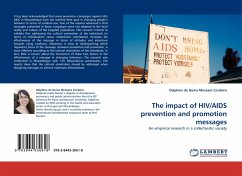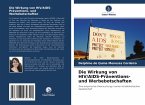It has been acknowledged that many prevention campaigns against HIV/AIDS in Mozambique have not reached their goal in changing people's behavior in terms of condom use. One of the reasons advanced is that messages presented in those campaigns were not adapted to the local reality and culture of the targeted population. This research intends to validate that addressing the cultural orientation of the individuals (in terms of individualism versus collectivism orientation) increases the effectiveness of the message in terms of attitudes and intentions towards using condoms. Moreover, it aims at distinguishing which regulatory focus of the message, between prevention and promotion, is most effective according to the cultural orientation of the individuals. In fact, little is known about the interaction of these two factors in the effectiveness of a message in changing behaviors. The research was conducted in Mozambique with 145 Mozambican participants. The results show that the cultural orientation should be addressed when designing messages to achieve maximum effectiveness.
Bitte wählen Sie Ihr Anliegen aus.
Rechnungen
Retourenschein anfordern
Bestellstatus
Storno








